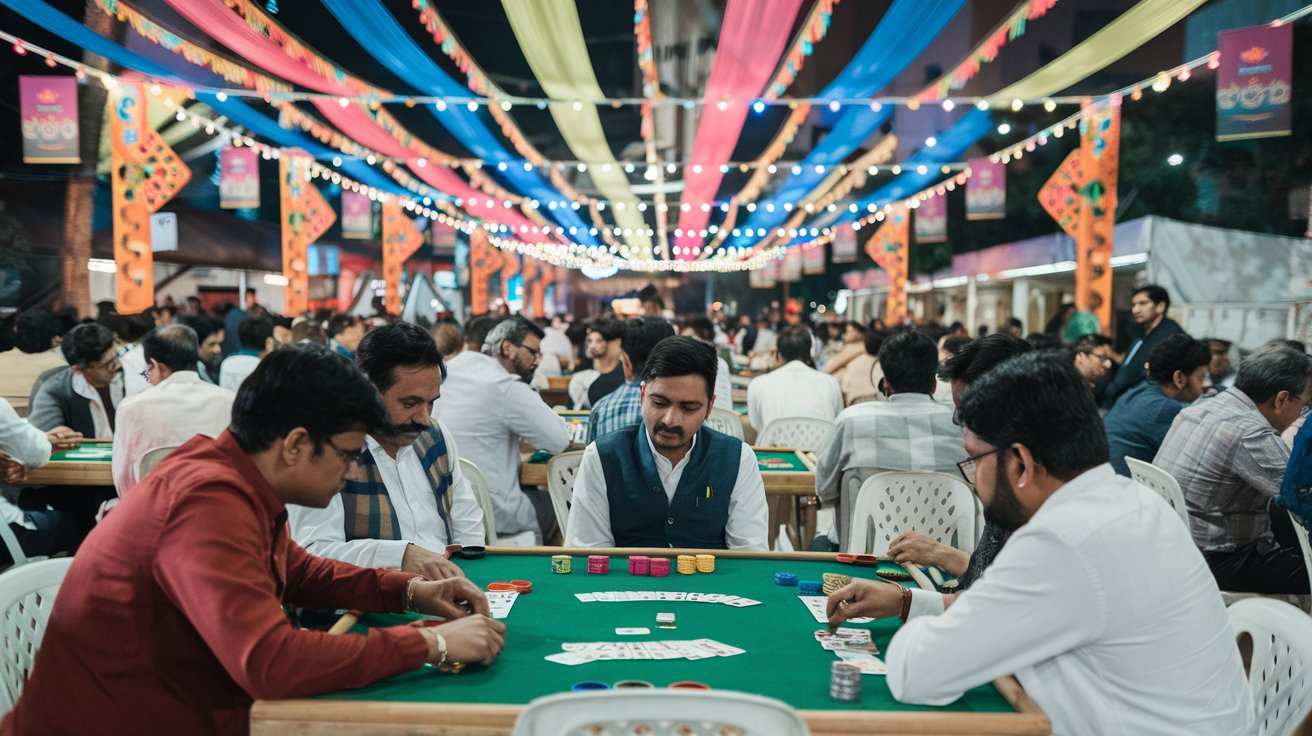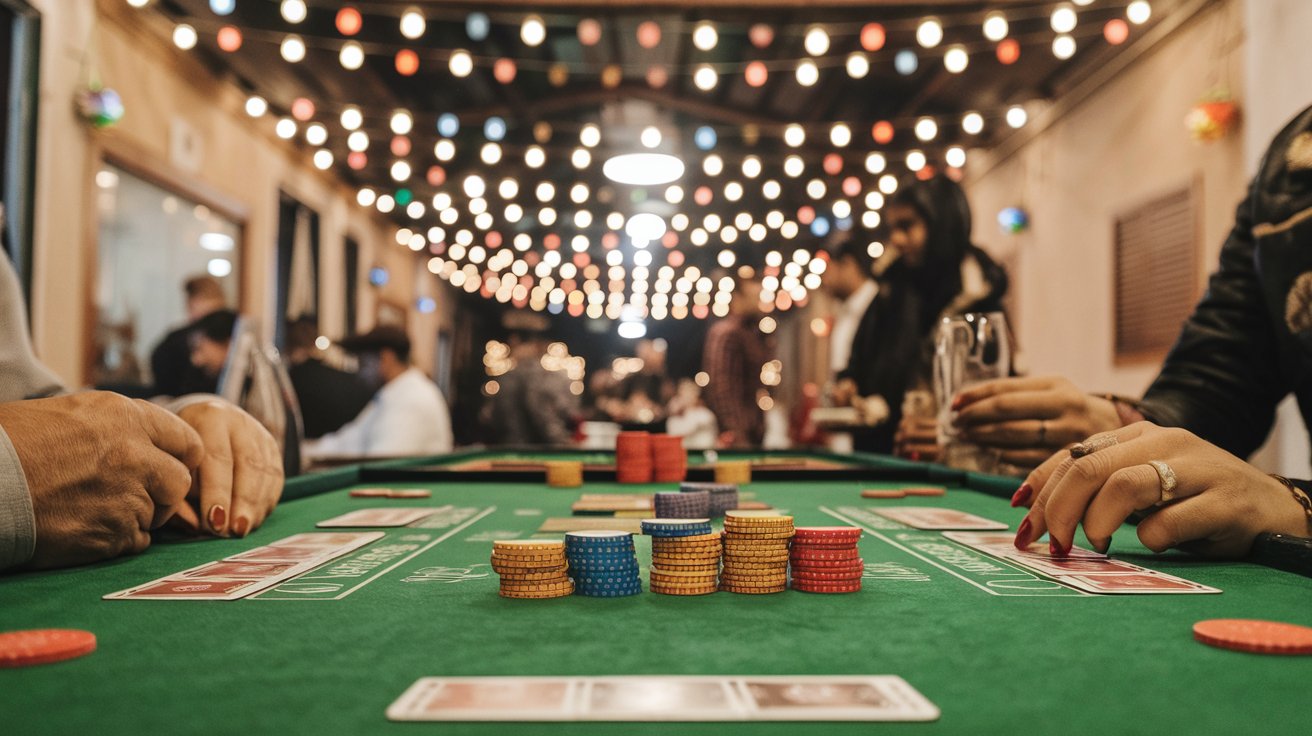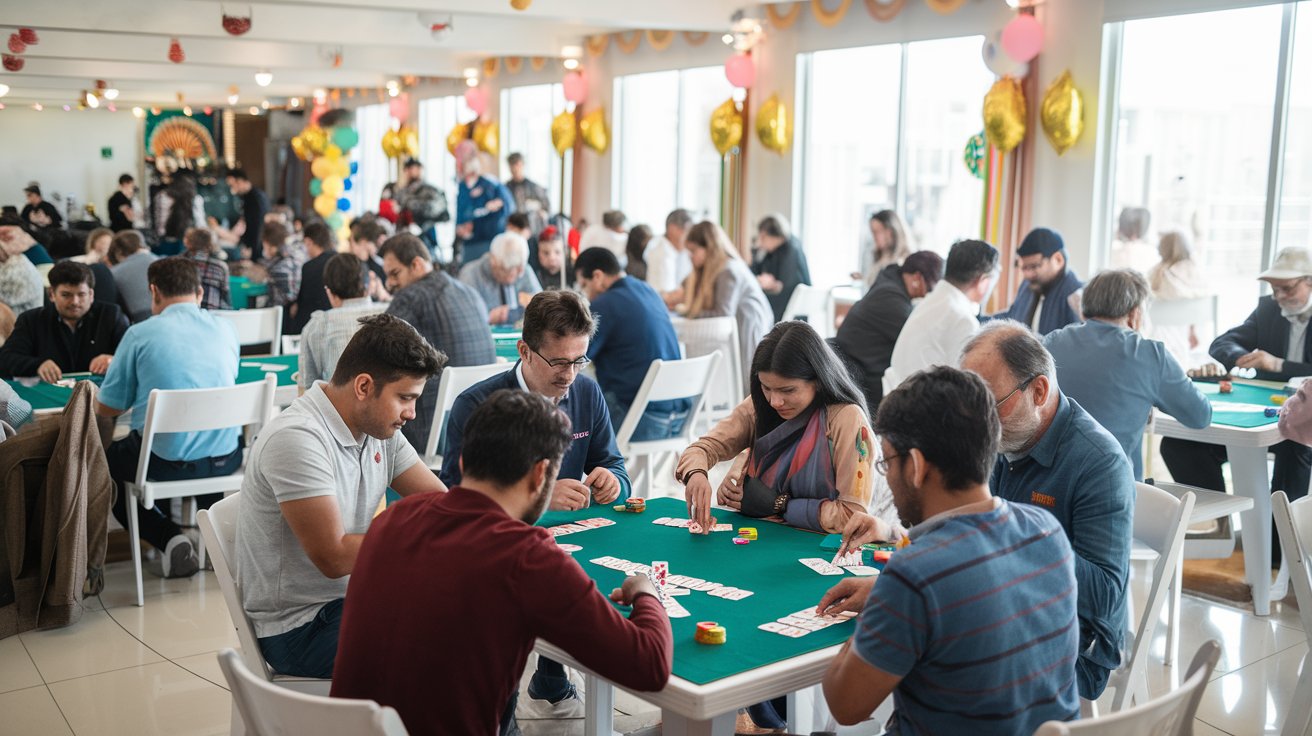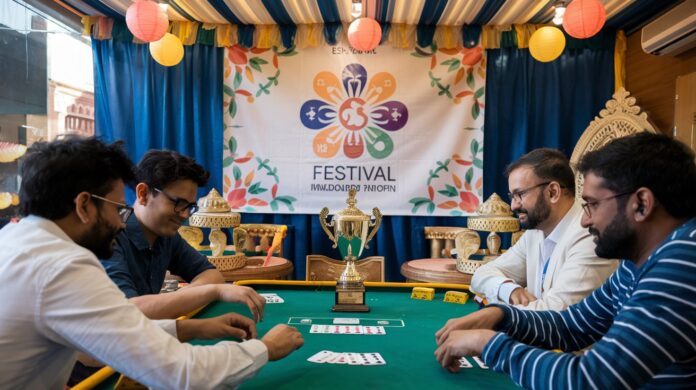When the air fills with the aroma of sweets, the flicker of diyas lights up homes, and laughter echoes through gatherings, you know it’s festival season in India. Amid the celebrations—be it Diwali’s dazzling triumph of light or Holi’s vibrant splash of color—there’s one companion that quietly steals the spotlight: rummy. This beloved card game, with its blend of strategy, skill, and a sprinkle of luck, has carved out a special place in Indian festivities. But what is it about rummy that makes it a festival favorite? How does it weave itself into the cultural tapestry of these joyous occasions?
In this 1500+ word exploration, we’ll uncover rummy’s deep-rooted connection to Indian festivals. From its historical ties to its modern-day resurgence on digital platforms, we’ll delve into why rummy isn’t just a game—it’s a tradition that brings people together, sharpens minds, and adds a competitive thrill to the festive spirit. Whether you’re a seasoned player or a curious observer, this blog will reveal the magic behind rummy’s festive charm.
The Festive Stage: Why Games Matter in India
Indian festivals are more than just rituals; they’re celebrations of life, community, and shared joy. From the firecrackers of Diwali to the kite-flying frenzy of Makar Sankranti, these occasions thrive on activities that unite families and friends. Games have always played a starring role in this dynamic—think of kite battles in Gujarat or the playful chaos of Holi’s water fights. They’re not just pastimes; they’re bonding rituals that spark laughter, rivalry, and memories.
Enter rummy, a game that fits seamlessly into this festive playbook. Unlike outdoor games that demand space or physical energy, rummy requires only a deck of cards, a flat surface, and eager players—making it perfect for cozy indoor gatherings after a day of rituals or feasting. Its mix of skill and chance mirrors the unpredictability of life celebrated during festivals, while its social nature amplifies the togetherness these occasions cherish.
Rummy and Diwali: The King of Festive Games

No festival embodies rummy’s prominence quite like Diwali, the Hindu festival of lights celebrated with unparalleled zeal across India. Known as Deepavali in the south, Diwali marks the victory of good over evil, often symbolized by Lord Rama’s return or Goddess Lakshmi’s blessings of wealth. And what’s a celebration of prosperity without a little gambling flair?
Historically, gambling has been a Diwali tradition, rooted in the belief that testing your luck on this auspicious night invites good fortune for the year ahead. While dice games like Teen Patti once dominated, rummy has steadily risen as the game of choice. Why? It’s less about blind luck and more about skill—a fitting tribute to Lakshmi, who favors the wise and resourceful.
Picture this: after lighting diyas and sharing ladoos, families gather around a table. The clatter of cards replaces the crackle of fireworks, and the room buzzes with strategy. “Did you pick up that Queen of Hearts?” someone teases, while another smirks, hiding a winning sequence. Rummy during Diwali isn’t just a game; it’s a ritual of wit and connection, where players vie for bragging rights—and sometimes a small pot of festive winnings.
Beyond Diwali: Rummy’s Festival Footprint
While Diwali may be rummy’s grand stage, its role extends to other Indian festivals, each adding a unique flavor to the game:
1. Holi: The Playful Twist
Holi, the festival of colors, is all about letting loose. After a morning of hurling gulal and drenching friends in water, the afternoon often turns to indoor relaxation. Rummy fits right in, offering a laid-back yet engaging way to wind down. The playful banter of the game—“You’re bluffing with that discard!”—echoes the lighthearted mischief of Holi itself.
2. Raksha Bandhan: Sibling Showdowns
Raksha Bandhan celebrates the bond between siblings, marked by rakhi-tying and gift exchanges. But once the formalities are done, many families turn to rummy for some friendly competition. It’s not uncommon for brothers and sisters to challenge each other, turning the game into a test of who’s the sharper strategist—a perfect extension of their lifelong rivalry.
3. Pongal and Onam: Southern Festive Fun
In South India, festivals like Pongal (Tamil Nadu’s harvest celebration) and Onam (Kerala’s cultural extravaganza) bring rummy to the forefront. After savoring pongal or feasting on a sadhya, families settle in for card games. Rummy’s simplicity and universal appeal make it a hit across linguistic and regional divides, uniting players in the festive spirit.
The Cultural Glue: Why Rummy Resonates

Rummy’s festival dominance isn’t accidental—it’s deeply tied to India’s cultural DNA. Here’s why it strikes such a chord:
1. Community Over Competition
Indian festivals emphasize togetherness, and rummy delivers. Unlike solitary games, it thrives in groups, fostering interaction. The laughter, the mock accusations of cheating, the triumphant declarations—all these moments strengthen bonds, making rummy a social glue during celebrations.
2. Skill Meets Celebration
Festivals often honor human potential—be it wisdom, creativity, or resilience. Rummy, with its demand for memory, observation, and strategy, reflects this ethos. Winning a hand feels like a small victory, a nod to the triumph of intellect that festivals like Diwali celebrate.
3. Tradition with a Twist
While rooted in tradition, rummy adapts effortlessly to modern tastes. Its shift from physical decks to online platforms mirrors how festivals themselves evolve—think of virtual pujas or digital greetings—keeping the essence alive while embracing change.
From Cards to Screens: Rummy’s Digital Festive Boom

The rise of online rummy has transformed its festive role, especially in the 21st century. As families spread across cities or even countries, physical gatherings aren’t always possible. Enter rummy apps like RummyCircle, Junglee Rummy, and Ace2Three, which bring the game to your fingertips. During Diwali 2024, for instance, millions logged on to play, with platforms reporting record participation—a trend likely to continue into 2025.
Online rummy adds a festive twist with special tournaments, bonus points, and cash prizes timed to coincide with holidays. Imagine playing a Diwali Rummy League from your couch, competing with players nationwide while munching on mithai. It’s the same game, but with a modern edge that keeps the tradition alive for a tech-savvy generation.
SEO tip: Keywords like “online rummy festivals,” “Diwali rummy games,” and “rummy apps India” are woven in to boost searchability without disrupting the flow.
The Skills Behind the Festive Fun
Rummy isn’t just a festive diversion—it’s a mental workout disguised as entertainment. Here’s what it brings to the table:
1. Strategic Thinking
Planning your melds—sets and sequences—requires foresight. Should you hold that Ace or discard it to mislead your cousin? This mirrors the calculated risks of festive gambling traditions.
2. Observation
Watching what others pick or toss is key. During a noisy Holi game, spotting a pattern in discards can turn the tide, adding a layer of intrigue to the fun.
3. Patience
Festivals are marathons, not sprints, and so is rummy. Waiting for the right card tests your cool, much like waiting for the perfect moment to burst a Diwali cracker.
4. Social Smarts
Reading the room—knowing when to bluff or banter—enhances the experience. It’s a skill that shines in festive settings, where emotions run high.
Rummy’s Historical Echoes
Rummy’s festive roots may stretch further back than we realize. While its modern form arrived in India via colonial influences (likely from the 19th-century game Conquian), card games have a longer history in the subcontinent. Mughal-era texts mention Ganjifa, a card game played with intricately painted decks, often during royal celebrations. Like rummy, Ganjifa involved strategy and was a social affair, suggesting that India was primed to embrace rummy as a festive staple.
This historical thread ties rummy to India’s love for intellectual games—think Chess (born from Chaturanga) or Pachisi, both of which graced festive courts. Rummy, in a way, is their modern heir, carrying forward the legacy of skill-based fun.
Challenges and Controversies
Rummy’s festive reign isn’t without hurdles. Its association with gambling—especially during Diwali—has sparked debates. While the Supreme Court of India deems rummy a game of skill (not chance), making it legal, some states impose restrictions on cash-based play. Online platforms navigate this by offering “practice” modes, ensuring the game remains accessible without crossing legal lines.
Socially, too, there’s a divide. Elders might see rummy as a wholesome tradition, while others worry about addiction, especially with online versions. Yet, moderation keeps it a festive joy rather than a vice—a balance Indians have struck with many traditions.
Conclusion: Rummy, the Festive Heartbeat
Rummy’s role in Indian festivals is more than a quirky footnote—it’s a vibrant thread in the cultural fabric. From Diwali’s high-stakes showdowns to Holi’s playful rounds, it captures the essence of celebration: connection, challenge, and cheer. Its journey from physical decks to digital screens only underscores its timeless appeal, proving that some traditions don’t fade—they evolve.
So, this festival season, as you light a lamp or tie a rakhi, consider shuffling a deck—or downloading an app. Rummy isn’t just a game; it’s a festive ritual that bridges generations, sharpens minds, and keeps the spirit of India alive, one hand at a time. Ready to play? The cards are calling.

Zareb Saleh is a journalist at Gulf Today and a ghostwriter for Gameoholic, specializing in gaming, technology, and digital culture. With a keen eye for industry trends, he delivers insightful stories that engage and inform readers.




